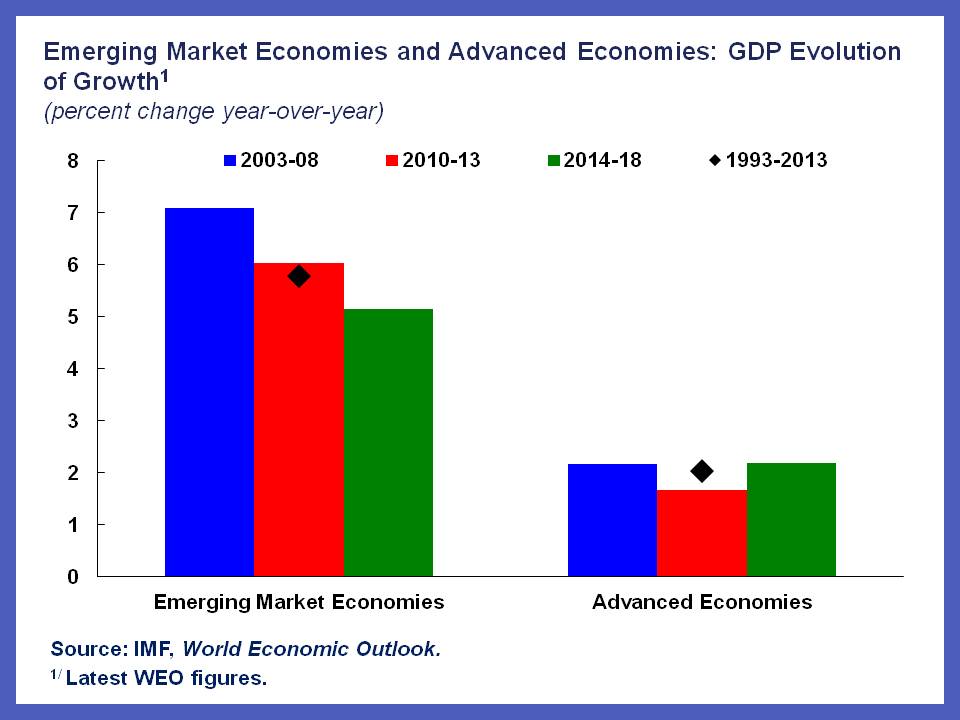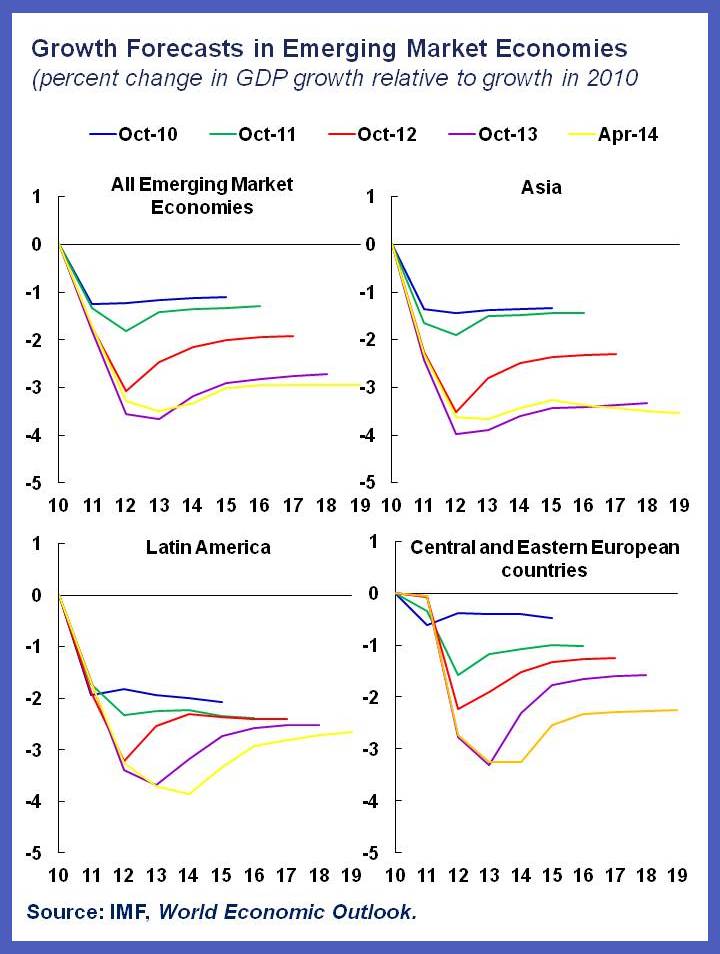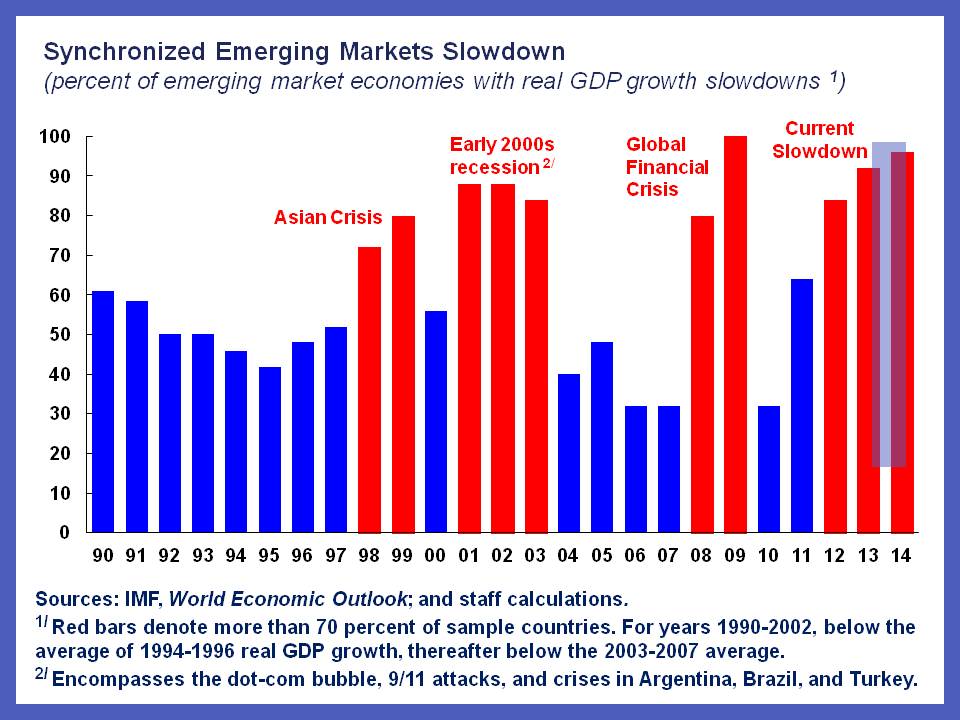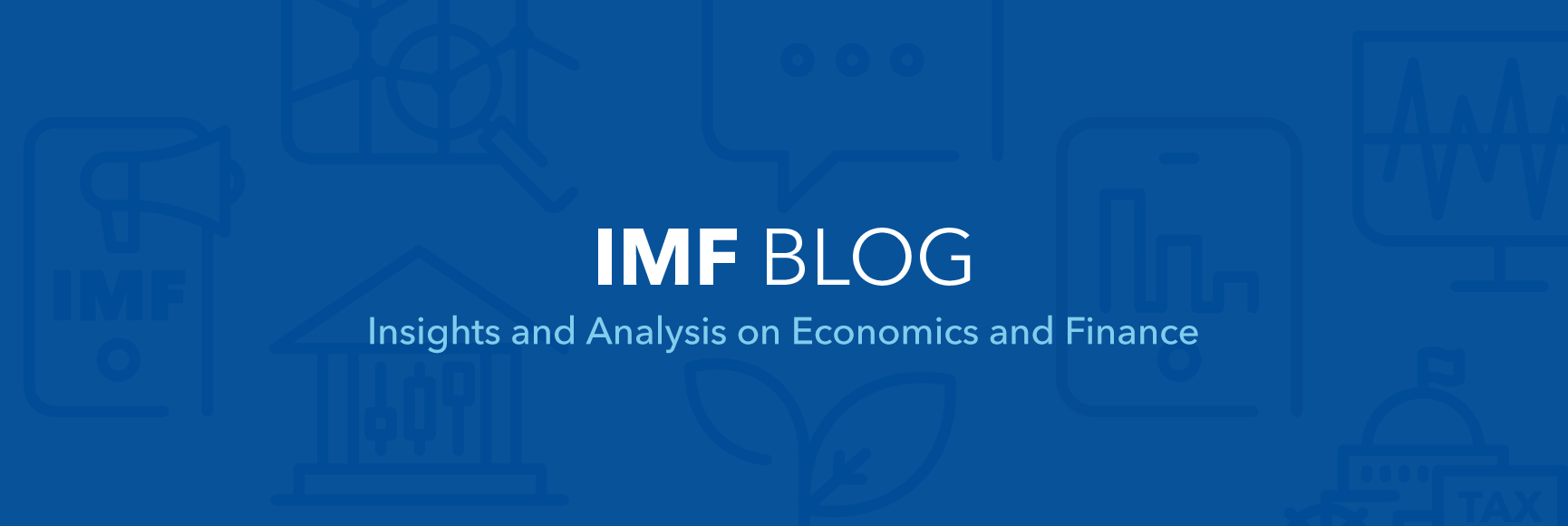1. Are emerging markets slowing down? Yes. They have been slowing down for some time now. GDP growth has declined from 7 percent during the pre-crisis period (2003-8) to 6 percent over the post-crisis period (2010-13) to 5 percent, in our projections, over the next 5 years (2014-18). This path is illustrated below in Chart 1. This last point stands out. Despite an uneven recovery, growth in advanced economies is projected to eventually recover. Not so for emerging markets.
[caption id="attachment_8140" align="aligncenter" width="300"] Chart 1[/caption]
Chart 1[/caption]
More worrisome is the medium—term outlook, where projections have been revised down serially since 2010 (Chart 2). This feature of repeated downward revisions to future growth is unique to the current downturn. In the past, we expected growth to bounce back (and it did). This time seems different. And, to some extent, weaker productivity and lower potential growth may be to blame.
[caption id="attachment_8138" align="aligncenter" width="300"] Chart 2[/caption]
Chart 2[/caption]
The slowdown is broad based. Growth rates are lower than the pre crisis average in more than 70 percent of emerging markets since 2012 (see the red bars in Chart 3). This “head count” indicates that slower growth extends well beyond the largest emerging markets like China and India.
[caption id="attachment_8139" align="aligncenter" width="300"] Chart 3[/caption]
Chart 3[/caption]
2. Will this have implications for the world economy? Yes. See the IMF's 2014 Spillover Report. The report highlights several key spillover channels and what we can expect.
- Expect lower growth in trading partners: A 1 percentage point slowdown in emerging market economies lowers growth in advanced economies by ¼ percentage point, on average, through reduced trade.
- Expect lower commodity prices. Emerging markets account for the bulk of commodity demand globally. A slowdown means a fall in demand which would lead to a fall in prices. Whether it is good or bad for incomes depends on whether a nation mainly consumes (good) or produces (bad) those commodities.
- Expect bank losses. A slowdown usually triggers problems in the repayment of loans and could lead to capital losses for banks, including those in advanced economies exposed to Emerging Market borrowers.
- Expect slower growth if you live in the same neighborhood. For example, a slowdown in China and Brazil would impact emerging Asia and Southern Cone countries, respectively, through trade. Russia would have an impact on its Central Asian neighbors through remittances, while Venezuela would affect its Central American neighbors through financing and energy cooperation agreements.
3. Can anything be done to reduce risks associated with the slowdown? Yes. The report also talks about how international coordination and policy preparedness will be key.
- More collaboration between advanced and emerging market economies to manage both spillovers and the possible consequences for the original spillover source economies themselves, known as spillbacks.
- Renewed attention to structural reforms for emerging economies to boost productivity and medium-term growth. While national priorities differ, common threads include addressing infrastructure needs, improving education and addressing skill shortages, and enhancing competition and improving business climate.






